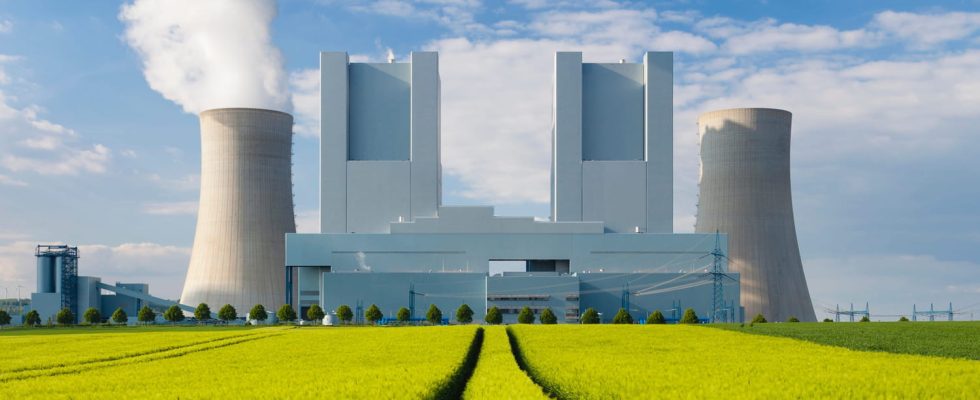The German government has formalized its return to the nuclear race. With technology that could lead to a super-powerful energy source.
Germany is often cited as an example as a country which has completely phased out nuclear power. Deeply marked by the Fukushima disaster which led Angela Merkel to draw a line under this energy source, the country shut down its last three reactors in April. For the better from the point of view of environmental risk, but also for the worse, with the feared revival of coal-fired power stations. However, Germany will indeed reopen a new chapter for nuclear power.
There is no question of rediscovering nuclear fission for the German government, which presented a research support program with another objective: to achieve the use of nuclear fusion this time. This technology is very ambitious, because it aims to produce a crazy amount of energy without carbon emissions and with very little or no radioactive waste. The control of fusion is a sea serpent in the energy sector, but projects to control it are multiplying in the face of the planned end of fossil fuels such as oil.
Bettina Stark-Watzinger, Federal Minister of Research, announced in an interview with the German press agency DPA in early September that “Germany will invest more than a billion euros in nuclear fusion research in over the next five years.”
For the German government, this is not at all a sweet dream, but rather a project which will come to fruition in the more or less near future. “The question is no longer whether the merger will take place, the question is rather whether Germany will be part of it,” the minister even continued to defend this substantial financial support. The environmentalist members of the government coalition were however opposed to this plan, but Stark-Watzinger, from the Liberal Democratic Party, managed to win their case. For this trained economist, “fusion is an enormous chance to solve all our energy problems”.
What is nuclear fusion?
Nuclear fusion is a reaction that allows two light atomic nuclei to join together to form a heavier nucleus. This reaction is the source of energy for the sun and other stars. During nuclear fusion, a large amount of energy is released in the form of heat. This heat could be used to produce electricity in nuclear fusion power plants.
However, nuclear fusion is a very difficult reaction to control. The conditions necessary for nuclear fusion are very high, with extreme temperature and pressure. Many scientists are working to develop controlled nuclear fusion techniques. Research in this area is progressing and it is possible that nuclear fusion will be used to produce electricity within a few decades.
A revolution that could change the world
Nuclear fusion could be a clean and safe source of energy. These advantages give it significant potential to meet the ever-increasing energy needs of the planet while preserving the environment.
From an energy point of view, nuclear fusion is much more efficient than nuclear fission. It releases a much greater amount of energy from a given amount of matter. The challenge is therefore also financial: generating as much energy for, ultimately, controlled costs, will make it possible to obtain very much cheaper electricity. A real revolution.
On the environmental side, nuclear fusion does not produce radioactive waste in the long term. Fission products, used in industry today, are radioactive for thousands of years, but they are effectively absent from nuclear fusion.
In terms of safety, nuclear fusion is also considered a safer technology than nuclear fission. In the event of an accident, the plasma contained in a nuclear fusion reactor can be cooled within seconds, stopping fusion reactions.
